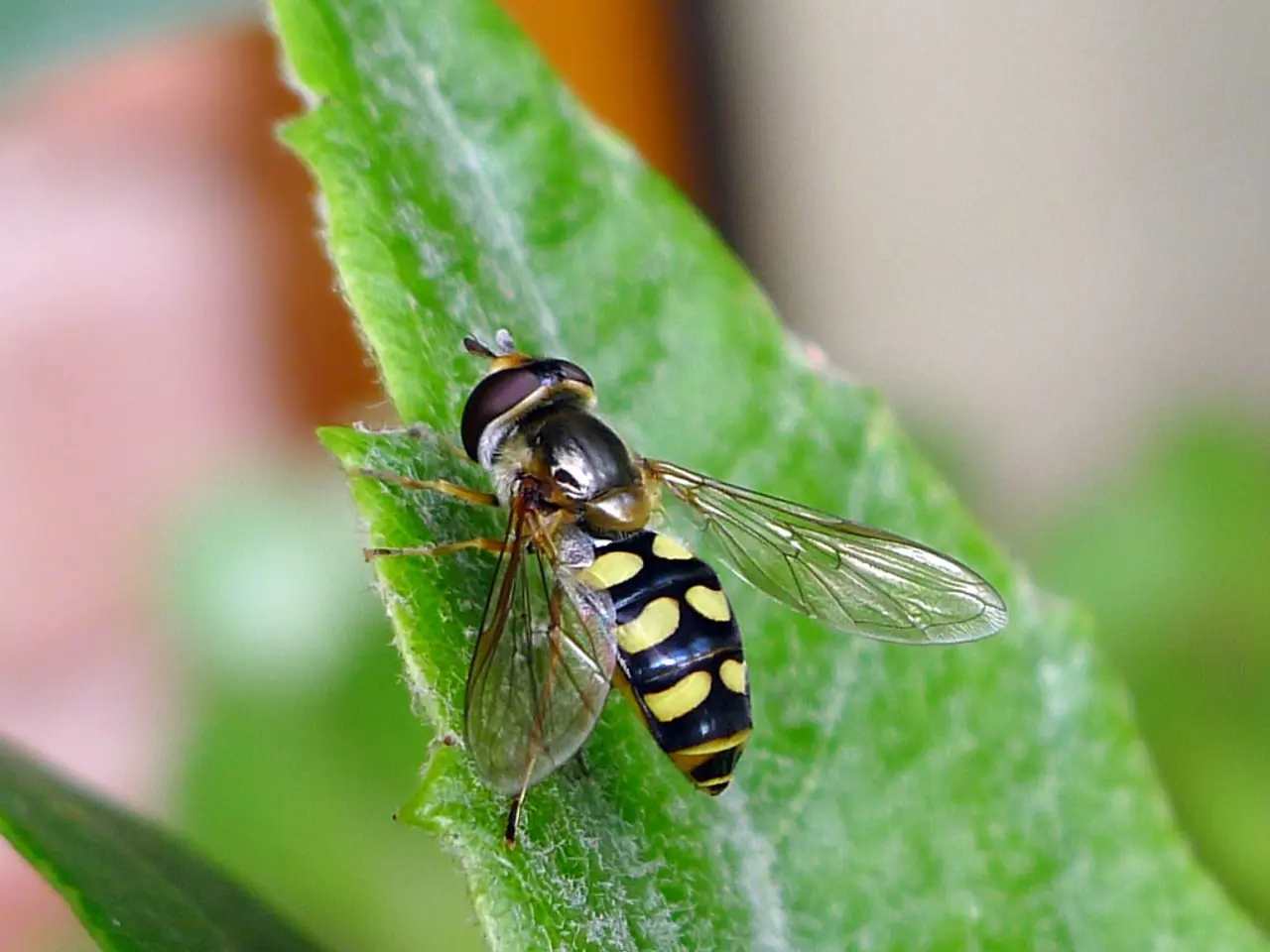Government Faced with Calls for Compensation: Duplomb Law Partial Censorship Sparks Outcry from Noisette and Betterave Industries
In the heart of France, a contentious debate is unfolding over the use of a pesticide known as acetamiprid. Despite EU-wide approval, the French government has held firm in its decision to ban the substance, a move that has sparked heated discussions among sugar beet and hazelnut farmers, environmentalists, and politicians.
The ban on acetamiprid, initially enforced in 2018 due to its harmful effects on bees and the environment, was recently upheld by President Macron following a ruling by the French Constitutional Council. The Council determined that allowing the pesticide back into use would infringe upon constitutional protections for the environment and public health [1][2][3][4].
However, the farming industry argues that the ban creates an unequal competitive disadvantage at the European level, as acetamiprid remains legal in other EU countries until 2033. Fabien Hamot, secretary-general of the General Confederation of Sugar Beet Growers of Somme, claims significant yield losses due to disease when affected by the ban [1][3].
The opposition to the reintroduction of acetamiprid is strong, with a student-led petition amassing over 2 million signatures. The petition reflects widespread public concern over pollinator safety, biodiversity, and human health risks. Critics emphasize that the return of acetamiprid would threaten ecosystems and water and soil quality [1][2][4].
The Constitutional Council specifically found the previous bill's provisions inadequate because it did not detail the duration or application conditions for using acetamiprid, thereby failing to safeguard France’s constitutional right to a healthy environment [2][4].
As a result, a new version of the law could potentially pass the Constitutional Council with a new framework. Senator LR Laurent Duplomb has initiated a law proposal regarding the use of acetamiprid, and he has not ruled out a new text to reintroduce the pesticide [4]. Cooperative Unicoque and ANPN have also requested the government to deposit a cross-party law proposal for the use of acetamiprid on hazelnut trees for five years.
The European Union is facing a distortion of competition due to the ban, as France remains the only EU country to have enforced such a measure. This situation has put France at odds with its European counterparts, creating a complex web of agricultural and environmental policy tensions [1][2][3][4].
As the debate continues, both sides are eager to find a solution that balances agricultural productivity with environmental and public health concerns. The future of acetamiprid in France remains uncertain, but one thing is clear: the issue is far from resolved.
[1] Le Monde, "Acetamiprid: Les agriculteurs du sucre et des noisetiers dénoncent un désavantage concurrentiel face aux pays de l'UE", 2025. [2] France Info, "Le Conseil constitutionnel rejette la réintroduction d'acetamiprid", 2025. [3] Le Figaro, "Le gouvernement français refuse de réintroduire l'acetamiprid malgré la pression des agriculteurs", 2025. [4] Europe 1, "Le sénateur LR Laurent Duplomb ne règle pas de l'élimination définitive d'acetamiprid", 2025.
The ban on acetamiprid, initially enforced due to concerns for bee health and the environment, has sparked debates among farmers, environmentalists, and politicians in France, with sugar beet and hazelnut farmers arguing that it creates an unequal competitive disadvantage within the EU. A new proposed law could potentially reintroduce the pesticide, aiming to provide a framework that balances agricultural productivity with environmental and public health concerns. This complex web of agricultural and environmental policy tensions has put France at odds with its European counterparts, raising questions about general news and political stances on food-and-drink, policy-and-legislation, and culture, particularly in relation to lifestyle choices and values.








